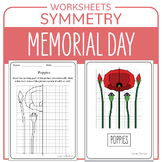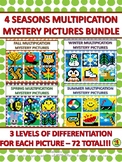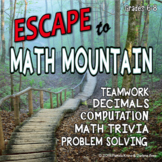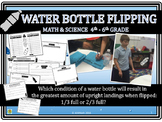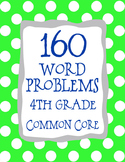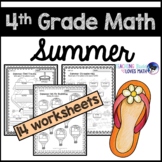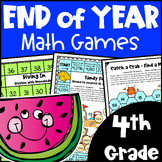4th grade math elective course proposals for Google Apps
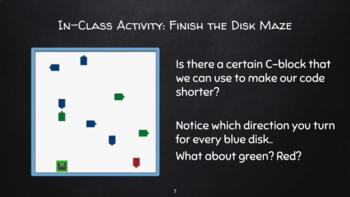
Introduction to VEX: Lesson 7
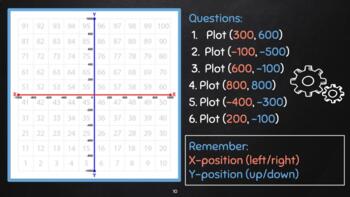
Introduction to VEX: Lesson 10
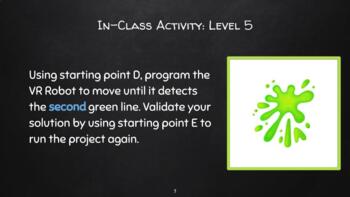
Introduction to VEX: Lesson 9
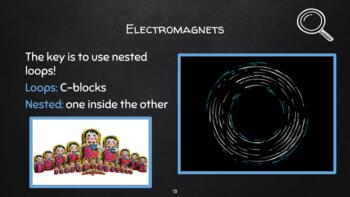
Introduction to VEX: Lesson 8

Introduction to VEX: Lesson 11
Find lessons for 4th grade math | TPT
Importance of learning math in 4th grade
Since math forms the basis for many other subjects — like science, engineering, and technology — it's of course essential that kids develop strong math skills from a young age as it makes them more likely to succeed in other courses in the future.
Benefits of learning 4th grade math
Learning math in 4th grade has many benefits. It helps students:
- Develop problem-solving, logical reasoning, and critical-thinking skills
- Prepare for more complex mathematical concepts in higher grades
- Understand how math is used in real-life situations
By ensuring that students have a solid understanding of math concepts, teachers can help set them up for future success
Key topics covered in 4th grade math
In this grade, math starts to become more complex and challenging. Generally, it's the year when many students transition from basic arithmetic to more complex mathematical concepts. Building on concepts learned in earlier grades, students will tackle topics like multi-digit multiplication, fractions, decimals, and geometry
Multiplication and division
By this grade, students generally have a basic understanding of multiplication and division and are ready to move on to learning how to multiply and divide multi-digit numbers. For multiplication, students will learn how to multiply four-digit numbers by one-digit numbers and multiply two two-digit numbers together. For division, students will learn how to divide numbers of up to four digits, many of which will involve remainders.
Fractions
Fourth graders generally have a basic understanding of fractions, but now they’ll learn how to learn how to convert fractions to decimals, and how to add and subtract fractions with the same denominator, different denominators, or different numerators. Students might also learn how to add and subtract mixed numbers.
Decimals
In 4th grade, students learn about decimals and how they relate to fractions and whole numbers. They learn how to read, write, and compare decimals to whole numbers and fractions. They'll also learn to read and write decimals up to the hundredth place.
Geometry
Fourth grade math introduces students to basic geometry concepts. They learn about points, lines, angles, and shapes. They also learn how to calculate the perimeter and area of shapes.
Measurement
Students learn about different units of measurement and how to convert between them.
Data analysis
Fourth-grade math introduces students to basic data analysis concepts. They learn how to collect and organize data, create graphs and charts, and interpret the results.
How to find math resources for 4th grade
Educators can save time preparing math lessons with resources created by experienced teachers. Simply search the TPT marketplace for "4th grade math," and filter by grade level, price, and/or resource type to find print and digital materials that've been proven to work in classrooms around the country.
Frequently asked questions
What types of 4th grade math resources are available on TPT?
There are many different types of math worksheets, lessons, and activities sold by Sellers on TPT. Some popular math worksheets and resources can be found on topics like: addition and subtraction, multiplication and division, place value, geometry, measurement, fractions, and much more.
Why is 4th grade math important?
Math in 4th is important because students begin to transition from basic arithmetic to more complex mathematical concepts. Additionally, they'll learn foundational concepts and skills that are necessary for solving more complex math problems in the future.
What if my child is struggling with math?
If your child is struggling with a specific math concept, you can provide extra support and resources such as math worksheets, tutoring, or online educational tools. Sometimes, visual aids like charts, graphs, and manipulatives can help children understand abstract concepts better.
How can I make math fun for my child?
Children learn best when they're engaged! Sprinkle a little fun into your math lessons by using games, videos, puzzles, and real-life scenarios. If your class seems to find math boring or uninteresting, you can also try connecting it to their interests or hobbies. Encourage your child to ask questions and explore mathematical concepts in different ways.
What are some common challenges in 4th grade math?
Common challenges include difficulty with multiplication and division, struggles with word problems, trouble with memorization, and lack of confidence in math abilities.
How hard is math in 4th grade?
In this grade, math becomes more complicated. Students spend many days exploring new ideas.
What are some key math concepts taught in 4th grade math?
Some key concepts taught to 4th grade students include multiplication and division, fractions, decimals, measurement units, and data.

